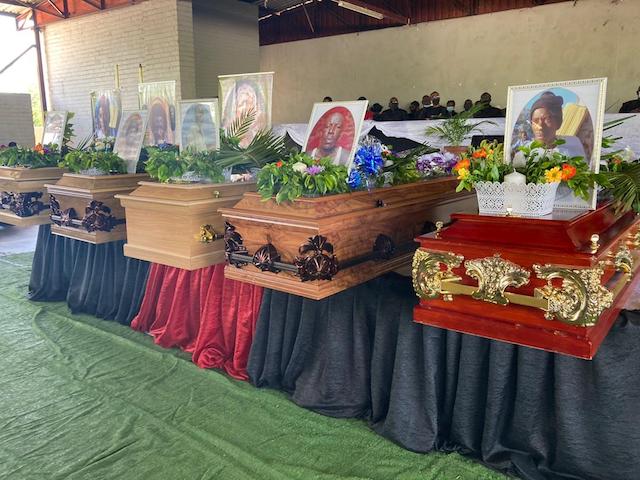The parliamentary standing committee on foreign affairs, defence and security has found that the Namibian government has not implemented the instruments of rectification required for the 2018 border treaty with Botswana, with the unmarked border leading to the harassment, arrest and shootings of Namibians.
However, Botswana has seemingly started with the implementation of the treaty, which is the root cause of the tension between the locals living along the Namibia-Botswana borderline and Botswana Defence Force (BDF) members.
Last year, the parliamentary standing committee on foreign affairs, defence and security undertook a two-week fact-finding mission to the Zambezi region to assess the conditions under which local communities are living along the Namibia-Botswana border and also to interrogate and understand the effects of the 2018 border treaty.
The report, released on Wednesday, revealed that numerous bilateral and stand-alone agreements on the 2018 border treaty are not complete, including the standard operating procedures (SOPs).
“There is a feeling of discontentment among members in the region, mainly because of the border treaty of 2018. It was confirmed that during the German colonial era, they drew borders theoretically but not physically on land, of which the locals were not aware.
However, evidence that the committee found has shown that the border treaty did not create new borders but only affirmed coordinates that already existed. The non-visibility of beacons is mainly the cause of the arrests, harassment and shooting of Namibians by the BDF as they cross the borderline unaware,” the report revealed.
Besides the border treaty not being fully formalised, the report further reveals that both the local and the four regional traditional authorities remain adamant that they were not consulted before the implementation of the border treaty of 2018, despite the government insisting that they were consulted.
Additionally, the government also does not assist the families of victims of the BDF shootings, in terms of burials or providing necessary counselling services.
“The Namibian Defence Force’s (NDF) visibility along the border is limited; they do not undertake many border patrols. The NDF is not deploying soldiers along the border in line with international law and as such, it can be viewed as a declaration of war,” the report stated.
Going forward, the parliamentary standing committee’s report recommends that president Hage Geingob address the Zambezi region’s security issue through the Namibia-Botswana Joint Commission to alleviate the security fears of residents living along the borderline.
Furthermore, the ministry of International Relations and Cooperation should also pursue all avenues to resolve the security issues with Botswana at a diplomatic level to reach a lasting solution, as well as establish a consulate in Kasane for general consular services.
“The office of the surveyor general in the Ministry of International Relations and Cooperation, and the Ministry of Home Affairs, Immigration and Security, jointly undertake sensitisation and awareness operations to educate people living along the Namibia-Botswana border line-delimited areas and border treaty of 2018. The defence ministry should increase patrols along the shared border in consultation with traditional authorities to identify the hot spots,” the report stated.
Over the past years, incidents of BDF aggression, intimidation and provocation towards Namibians living along the river border between the two countries have been on the rise.
It’s been confirmed that since independence, the BDF has killed over 37 Namibians.
The latest killings were those of Tommy, Martin and Wamunyima Nchindo and their cousin Sinvula Munyeme on 5 November 2020, along the Chobe River on suspicion that they were part of a poaching syndicate.
The shock of their deaths was too much to bear for the mother of the Nchindo brothers, Alphonsina Mubu (69), who collapsed and died five days after their deaths.



Leave a Reply